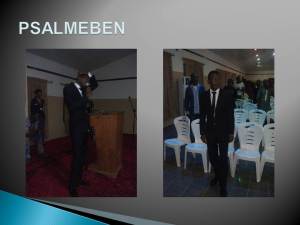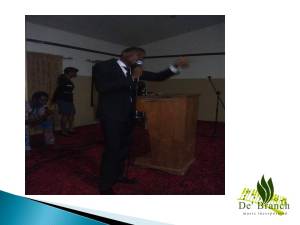The Righteous shall Flourish like a Palm tree
The reality in Gods word is that righteousness exalts a nation sin is reproach to many people.
The foundation of Gods word cannot be changed, the fact that we live in d world of sin dose not say we should dwell in it’s acts.
God gave us the assurance that every righteous man shall flourish and will be blessed beyond curse..
Take your time today in few seconds surrender your life to Jesus and you shall be blessed and lifted.
Debranch Music Ministers
Watch “DEBRANCH REHEARSAL x264” on YouTube
DEBRANCH REHEARSAL x264: http://youtu.be/jr-u6TfU0iU
My First Trip Alone
Quisque metus justo, tincidunt fringilla feugiat vitae, rhoncus et sem. Proin ac ultrices leo, nec dapibus tortor. Maecenas a felis viverra, bibendum nisi ac, malesuada neque. Nulla non aliquam orci. Fusce sit amet mi pulvinar, luctus eros eu, blandit odio. Vestibulum finibus malesuada mauris quis auctor. Donec a tincidunt mi. Donec ac elit massa. Suspendisse tristique elit sit amet eros egestas suscipit. Integer ullamcorper iaculis varius. Morbi et egestas ipsum, ac gravida ante. Vestibulum at massa orci. Cras mollis mauris sit amet scelerisque interdum. Praesent consectetur lectus sed purus consequat rutrum.
SANCTIFICATION
What Is Sanctification?
Scripturally, the word sanctification has three meanings: First, separation; second, dedication; third, spiritfilling. Webster’s definition of it is as follows: “1. Sanctification is the act of God’s grace by which the affections of man are purified, or alienated from sin and the world, and exalted to a supreme love of God; also, the state of being thus purified or sanctified. 2. The act of consecrating, or setting apart for a sacred purpose.” “Sanctifier. One who sanctifies or makes holy; specifically, the Holy Ghost.” “Sanctify. 1. To set apart to a holy or religious use. 2. To make holy or free from sin; to cleanse from moral corruption or pollution; to make holy by detaching the affections from the world and its defilements and exalting them to a supreme love of God.” Scripturally and practically, the terms sanctification, holiness, purity, and perfection are synonymous. Holiness. Separation: setting apart; sacredness. Purity. Cleanness; chastity. Perfection. Completeness; wholeness. All this is comprehended in one word, sanctification.
It is evident that this term signifies much more in the New Testament sense than it does in the Old Testament. In the Old Testament it meant but a dedication, a setting apart to a holy use, as in the example of the sanctification of the tabernacle and its contents—the altar and laver, and all the vessels belonging thereto—and Aaron and his sons and their garments (Leviticus 8:10-30). In this dispensation of grace it means infinitely more; for in that dispensation it was but an outward and ceremonial work, but now it is an inwrought work, permeating and purifying the affections through and through by the cleansing blood and heavenly fire, and filling the dedicated temple, our body, with the Holy Ghost, as in the example of the early church at Pentecost.
The justified believer must meet the conditions of complete separation and exclusive dedication of himself to God, in a sense that no guilty sinner can do. This is the believer’s part. He must purify himself. “Every man that hath this hope in him purifieth himself, even as he is pure.” “Having therefore these promises, dearly beloved, let us cleanse ourselves from all filthiness of the flesh and spirit, perfecting holiness in the fear of God.” This brings the believer into the condition where God can fulfill His part. He can now take exclusive possession of the dedicated temple, and sanctify it. “And the very God of peace sanctify you wholly.” “And they were all filled with the Holy Ghost.” This brings the believer into a more perfect spiritual relationship with God than when simply justified.
Sanctification a Bible Doctrine
“And now, brethren, I commend you to God, and to the word of his grace, which is able to build you up, and to give you an inheritance among all them which are sanctified.”
“To open their eyes, and to turn them from darkness to light, and from the power of Satan unto God, that they may receive forgiveness of sins, and inheritance among them which are sanctified by faith that is in me.”
“Sanctify them through thy truth: thy word is truth… And for their sakes I sanctify myself, that they also might be sanctified through the truth. Neither pray I for these alone, but for them also which shall believe on me through their word.”
“If a man therefore purge himself from these, he shall be a vessel unto honour, sanctified, and meet for the master’s use, and prepared unto every good work.”
“That every one of you should know how to possess his vessel in sanctification and honour.”
God Our Sanctifier
“And the very God of peace sanctify you wholly; and I pray God your whole spirit and soul and body be preserved blameless unto the coming of our Lord Jesus Christ. Faithful is he that calleth you, who also will do it.”
“Jude, the servant of Jesus Christ, and brother of James, to them that are sanctified by God the Father, and preserved in Jesus Christ, and called.”
Sanctified in Christ
“Unto the church of God which is at Corinth, to them that are sanctified in Christ Jesus…. But of him are ye in Christ Jesus, who of God is made unto us wisdom, and righteousness, and sanctification, and redemption.”
Sanctified through the Truth
“Sanctify them through thy truth; thy word is truth.”
“That he might sanctify and cleanse it with the washing of water by the word.”
By the Blood of Jesus
“Wherefore Jesus also, that he might sanctify the people with his own blood, suffered without the gate.” “For if the blood of bulls and of goats, and the ashes of an heifer sprinkling the unclean, sanctifieth to the purifying of the flesh: How much more shall the blood of Christ, who through the eternal Spirit offered himself without spot to God, purge your conscience from dead works to serve the living God?” “By the which will we are sanctified through the offering of the body of Jesus Christ once for all…. For by one offering he hath perfected for ever them that are sanctified.”
“Of how much sorer punishment, suppose ye, shall he be thought worthy, who hath trodden under foot the Son of God, and hath counted the blood of the covenant, wherewith he was sanctified, an unholy thing, and hath done despite unto the Spirit of grace?”
And the Holy Spirit
“That I should be the minister of Jesus Christ to the Gentiles, ministering the gospel of God, that the offering up of the Gentiles might be acceptable, being sanctified by the Holy Ghost.”
“But we are bound to give thanks alway to God for you, brethren beloved of the Lord, because God hath from the beginning chosen you to salvation through sanctification of the Spirit and belief of the truth.”
These and many other texts of scripture teach us that sanctification is a Bible doctrine. There is but one reason why some people cannot see it in the Bible—their eyes are blinded. All who are willing to yield themselves to God and His word, will soon be taught this blessed truth. Jesus prayed that His disciples might become sanctified. They had not yet come into this experience. Jesus knew that they needed it. It was His desire for their highest good. They were not able to go forth and cope with the powers of sin. They had been under the teaching of the Master and in His presence, and therefore were protected by Him from the enemy but now he was soon to be taken from them, and He knew that they must be “endued with power from on high.” Therefore He implored the Father for the sanctification of the eleven; and not “for these alone, but for them also which shall believe on me through their word.” This reaches down through the entire gospel dispensation. It is His blessed will that we all shall be sanctified. As justified believers, we each are as needy of this grace as were the eleven disciples. It is indispensible for our spiritual welfare.
Some are disposed to look upon this matter as optional with them; but such is a mistake. The time comes in the experience of every true believer when the Holy Spirit brings before him the conditions of a definite and absolute consecration. A refusal to meet these conditions, done ignorantly, will bring a cloud over our experience of justification and, eventually, if persisted in wilfully, will bring us into God’s utter disapproval. “Therefore to him that knoweth to do good, and doeth it not, to him it is sin.”
Sanctification is the normal state of the Christian. The Father, Son and Holy Spirit are jointly interested in us, that we attain unto this grace. Our unity with the Godhead is incomplete without it, so also is our unity with each other; “For both he that sanctifieth and they who are sanctified are all of one: for which cause he is not ashamed to call them brethren.” A heart washed and made pure by the blood of Christ and filled with the Holy Spirit will always be in perfect fellowship with divinity, and also with all other hearts of like experience. The unsanctified heart of the believer cannot be fully satisfied, because of the consciousness of the presence of the carnal nature, more scripturally called “our old man.” Just what it is may not perhaps be perfectly understood by the new convert, but that something abnormal exists will soon be discovered, and there will be a longing in the heart for an inward cleansing—a normal desire for the normal experience. On the other hand, when this blessed experience is attained, there comes with it the consciousness of inward purity which fully satisfies the heart, and it can sing with the spirit and with the understanding,
“Hallelujah for the cleansing;
It has reached my inmost soul.”
For this purpose Christ gave Himself for the church—“That he might sanctify and cleanse it.” God gave Him to the world that whosoever believes in Him shall not perish, but have everlasting life, for our justification; but Christ gave Himself for the church, for our sanctification.
The gospel commission of the apostle Paul specifies clearly the doctrine of sanctification, the “inheritance among them which are sanctified.” He could not have been faithful to this commission without leading souls from “forgiveness of sins” into this “inheritance.” His ministry and epistles to the different churches prove his faithfulness. Upon his first acquaintance with the brethren at Ephesus be asked them the question, “Have ye received the Holy Ghost since ye believed?” And after three years of faithful ministry in that city, upon the solemn event of his departure from them, among his last words he reminds the church of the “inheritance among all them which are sanctified.” Then about four years later, while a prisoner at Rome, he writes back to them his epistle to the Ephesians, which in every chapter sparkles with beautiful gems of thought upon the subject of sanctification. In his letter to the church of Rome we are forcibly reminded that this doctrine was prominent in his teaching, employing such terms as, “this grace wherein we stand,” “our old man is crucified… that the body of sin might be destroyed,” “dead indeed unto sin,” “free from sin,” “married to… him who is raised from the dead,” “present your bodies a living sacrifice,” “being sanctified by the Holy Ghost.” These terms and others signify the precious experiences of sanctification.
In the first and second epistles to the Corinthians we also notice the mention of this experience, and that there were some saints at Corinth that were sanctified (1 Corinthians 1:2,30), although some were not, and were told that they were yet carnal. There were evidently only the two classes—sanctified and justified, in the church there, the same as is usually the case everywhere today. In speaking of the congregation, he says “But ye are washed, but ye are sanctified, but ye are justified in the name of the Lord Jesus, and by the Spirit of God.” In the second epistle, he exhorts them: “Let us cleanse ourselves from all filthiness of the flesh and spirit, perfecting holiness in the fear of God,” and among the closing words of this letter, he says, “Be perfect.”
Thus we can see in all the epistles of this apostle, the theme of sanctification. His personal testimony to the Galatians reads: “I am crucified with Christ.” His statement to the brethren at Philippi was: “As many as be perfect”; to those at Colosse: “Ye are dead and your life is hid with Christ in God,” “Ye have put off the old man with his deeds; And have put on the new man”; his teaching in the epistles to the Thessalonians, showing them that sanctification is the will of God to them, and his desire that the “God of peace sanctify you wholly.” His instructions to Timothy show how we may become a vessel “sanctified, and meet for the master’s use,” and he refers to the fact that there were some who “call on the Lord out of a pure heart.” His letter to Titus, in which he mentions how Jesus gave Himself for us, that He might “purify unto himself a peculiar people.” These all add testimony to this doctrine and the apostle’s faithfulness in his ministry. Some scholars think Apollos is the author of the epistle to the Hebrews; but whether Paul or Apollos, it abounds with truth upon sanctification.
All the other writers of the New Testament teach the same truth. James says, “Purify your hearts, ye double minded.” Peter gives emphasis to the doctrine of holiness: “Be ye holy,” and that “we, being dead to sins, should live unto righteousness”; and desires that the God of all grace “make you perfect, stablish, strengthen, settle you”; and that at the coming of Christ “ye may be found of him in peace, without spot and blameless.” Jude addresses his epistle “to them that are sanctified… and preserved.”
Then when we search the writings of John we are almost overwhelmed with glory, as we read his beautiful teachings upon this theme, which he so clearly sets forth. God grant that we all may “walk in the light as he is in the light,” walking “even as he walked,” that His love in us may be “perfected,” that we may prayerfully hold fast and abide in this “unction from the Holy One,” that the “anointing” may abide in us. Such an experience can be realized only by every one that “purifieth himself, even as he is pure.”
OUR PAST EVENTS. THE PROPHETIC WORSHIP EXPERIENCE LIVE …
It was an all night of worship all through and the prophetic with prophet Gbemiga Adetuberu and other worshippers
It was great experience with massive testimonies.
TESTIMONIES
MERCY from MAPOLY she Was healed from Asthma During the worship experience
BEN from FUNAAB he was healed from partial eyesight Problem
HEALING OF SS. TO AA.
BREAKTHROUGH TO TRAVEL ABROAD.
l
THE GOD’S OWN ELECT
Question: “Who are the elect of God?”
Answer: Simply put, the “elect of God” are those whom God has predestined to salvation. They are called the “elect” because that word denotes the concept of choosing. Every four years in the U.S., we “elect” a President—i.e., we choose who will serve in that office. The same goes for God and those who will be saved; God chooses those who will be saved. These are the elect of God.
As it stands, the concept of God electing those who will be saved isn’t controversial. What is controversial is how and in what manner God chooses those who will be saved. Throughout church history, there have been two main views on the doctrine of election (or predestination). One view, which we will call the prescient or foreknowledge view, teaches that God, through His omniscience, knows those who will in the course of time choose of their own free will to place their faith and trust in Jesus Christ for their salvation. On the basis of this divine foreknowledge, God elects these individuals “before the foundation of the world” (Ephesians 1:4). This view is held by the majority of American evangelicals.
The second main view is the Augustinian view, which essentially teaches that God not only divinely elects those who will have faith in Jesus Christ, but also divinely elects to grant to these individuals the faith to believe in Christ. In other words, God’s election unto salvation is not based on a foreknowledge of an individual’s faith, but is based on the free, sovereign grace of Almighty God. God elects people to salvation, and in time these people will come to faith in Christ because God has elected them.
The difference boils down to this: who has the ultimate choice in salvation—God or man? In the first view (the prescient view), man has control; his free will is sovereign and becomes the determining factor in God’s election. God can provide the way of salvation through Jesus Christ, but man must choose Christ for himself in order to make salvation real. Ultimately, this view diminishes the biblical understanding of God’s sovereignty. This view puts the Creator’s provision of salvation at the mercy of the creature; if God wants people in heaven, He has to hope that man will freely choose His way of salvation. In reality, the prescient view of election is no view of election at all, because God is not really choosing—He is only confirming. It is man who is the ultimate chooser.
In the Augustinian view, God is has control; He is the one who, of His own sovereign will, freely chooses those whom He will save. He not only elects those whom He will save, but He actually accomplishes their salvation. Rather than simply make salvation possible, God chooses those whom He will save and then saves them. This view puts God in His proper place as Creator and Sovereign.
The Augustinian view is not without problems of its own. Critics have claimed that this view robs man of his free will. If God chooses those who will be saved, then what difference does it make for man to believe? Why preach the gospel? Furthermore, if God elects according to His sovereign will, then how can we be responsible for our actions? These are all good and fair questions that need to be answered. A good passage to answer these questions is Romans 9, the most in-depth passage dealing with God’s sovereignty in election.
The context of the passage flows from Romans 8, which ends with a great climax of praise: “For I am convinced that… [nothing] in all creation, will be able to separate us from the love of God that is in Christ Jesus our Lord” (Romans 8:38-39). This leads Paul to consider how a Jew might respond to that statement. While Jesus came to the lost children of Israel and while the early church was largely Jewish in makeup, the gospel was spreading among the Gentiles much faster than among the Jews. In fact, most Jews saw the gospel as a stumbling block (1 Corinthians 1:23) and rejected Jesus. This would lead the average Jew to wonder if God’s plan of election has failed, since most Jews reject the message of the gospel.
Throughout Romans 9, Paul systematically shows that God’s sovereign election has been in force from the very beginning. He begins with a crucial statement: “For not all who are descended from Israel are Israel” (Romans 9:6). This means that not all people of ethnic Israel (that is, those descended from Abraham, Isaac and Jacob) belong to true Israel (the elect of God). Reviewing the history of Israel, Paul shows that God chose Isaac over Ishmael and Jacob over Esau. Just in case anyone thinks that God was choosing these individuals based on the faith or good works they would do in the future, he adds, “Though they [Jacob and Esau] were not yet born and had done nothing either good or bad – in order that God’s purpose of election might continue, not because of works but because of him who calls” (Romans 9:11).
At this point, one might be tempted to accuse God of acting unjustly. Paul anticipates this accusation in v. 14, stating plainly that God is not unjust in any way. “I will have mercy on whom I have mercy, and I will have compassion on whom I have compassion” (Romans 9:15). God is sovereign over His creation. He is free to choose those whom He will choose, and He is free to pass by those whom He will pass by. The creature has no right to accuse the Creator of being unjust. The very thought that the creature can stand in judgment of the Creator is absurd to Paul, and it should be so to every Christian, as well. The balance of Romans 9 substantiates this point.
As already mentioned, there are other passages that talk to a lesser extent on the topic of God’s elect (John 6:37-45 and Ephesians 1:3-14, to name a couple). The point is that God has ordained to redeem a remnant of humanity to salvation. These elect individuals were chosen before the creation of the world, and their salvation is complete in Christ. As Paul says, “For those whom he foreknew he also predestined to be conformed to the image of his Son, in order that he might be the firstborn among many brothers. And those whom he predestined he also called, and those whom he called he also justified, and those whom he justified he also glorified” (Romans 8:29-30).




 THE PROPHETIC
THE PROPHETIC

























